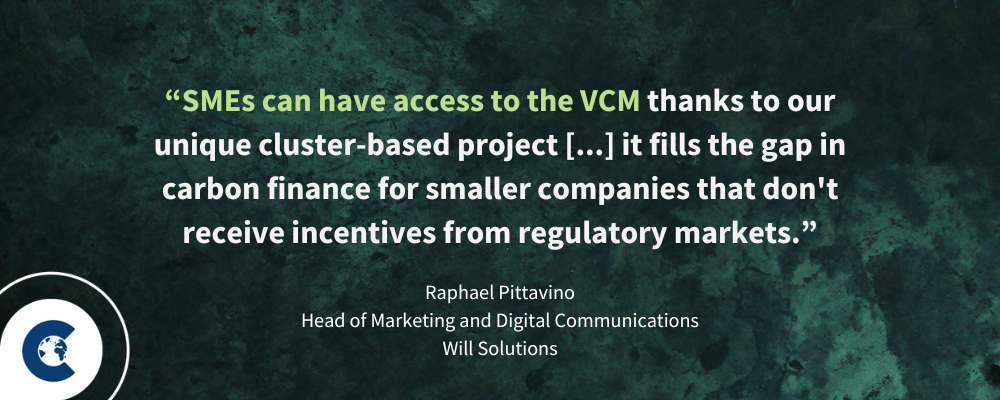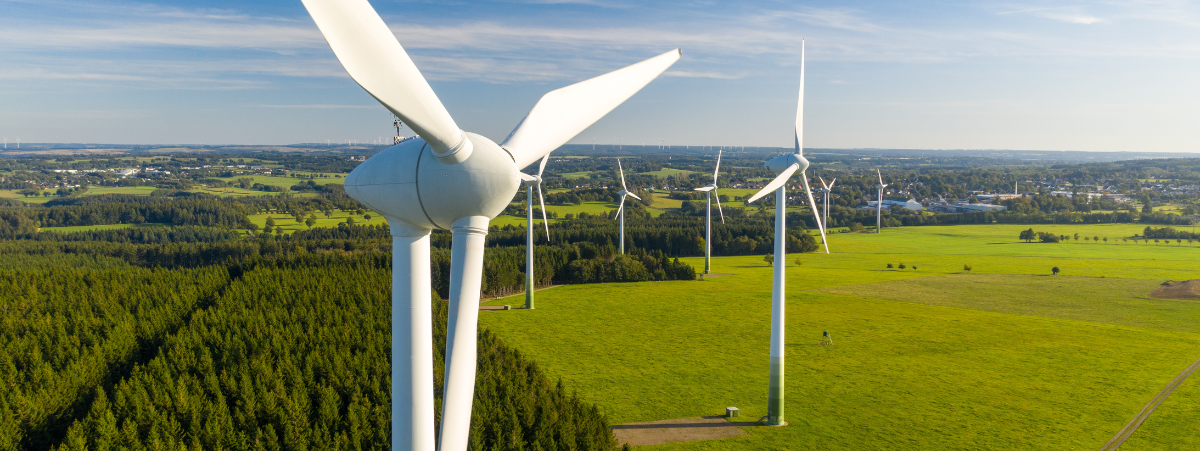In this episode of ClimateTalks we meet Will Solutions to discuss how they are Pioneering decarbonization through the sustainable community project.
In a recent interview, we met with Raphael Pittavino, Head of Marketing and Digital Communications as he shared insights into their groundbreaking initiative. The Sustainable Community Project offers a unique cluster-based approach to carbon management and decarbonization for small and medium-sized enterprises (SMEs), non-profit organisations (NPOs), and municipalities in Canada.
What is their cluster-based approach?
The Sustainable Community Project stands out due to its cluster-based model, which allows over 160 project developers from various sectors to contribute to and benefit from a collective carbon reduction effort. This model enables access to voluntary carbon markets, a significant opportunity for smaller emitters who typically lack the resources, time and workforce to access carbon markets on their own. In this way, Will Solutions covers the costs of investment and access to the voluntary market, offering a no-advance-fee gateway to participating companies. The project works like a climate hive! Its success lies in the power of numbers and the participatory aspect of the project.
How are Will Solutions bridging the gap for small emitters?
Will Solutions aims to address the gap in support for emitters producing below 25,000 tons of emissions annually. Unlike larger entities regulated by mandatory carbon markets, smaller organisations often struggle to find incentives and resources for decarbonization. The Sustainable Community Project offers these smaller players a pathway to green financing and carbon credit generation, facilitating significant ecological impacts.

Understanding project validation and methodology
The project’s methodology, known as VM0018, was first validated by VCS (Verified Carbon Standard) in 2012 and has been renewed until 2029. This framework ensures rigorous standards for calculating emission reductions, maintaining additionality, permanence, and conservative estimations. Raphael told us that Will Solutions continuously updates the methodology to meet evolving standards and innovative practices.
Types of eligible projects
The Sustainable Community Project includes three main types of projects:
Energy Efficiency: Projects like heat recovery systems and building insulation.
Energy Conversion: Transitioning from fossil fuels to renewable energy sources such as solar panels or geothermal energy.
Waste Management: Reusing biomass scraps for creating eco-friendly products, reducing waste, and pressure on natural resources.
Driving positive impact & future developments
Since its inception, the project has achieved 8.1 million tons of GHG reductions, equivalent to removing over 200,000 cars from Canadian roads. In 2023 alone, members received over two million Canadian dollars, highlighting the project’s financial and environmental success.
Will Solutions is expanding its scope to include transportation decarbonization and opening its new carbon portal for a more user-friendly experience. The portal will allow members to monitor their carbon performance, upload proof of reductions, access reports, and communicate with support teams directly.
Why should companies get involved?
Supporting the Sustainable Community Project means contributing to a model that empowers SMEs and smaller emitters to achieve significant decarbonization. The project not only provides a clear and financially feasible plan for reducing emissions but also creates a virtuous cycle of reinvestment in new ecological initiatives, driving long-term environmental and economic benefits.
In summary, Will Solutions’ Sustainable Community Project exemplifies an innovative and inclusive approach to carbon management, offering vital support and opportunities for smaller emitters to participate in the fight against climate change. Watch the complete interview now







